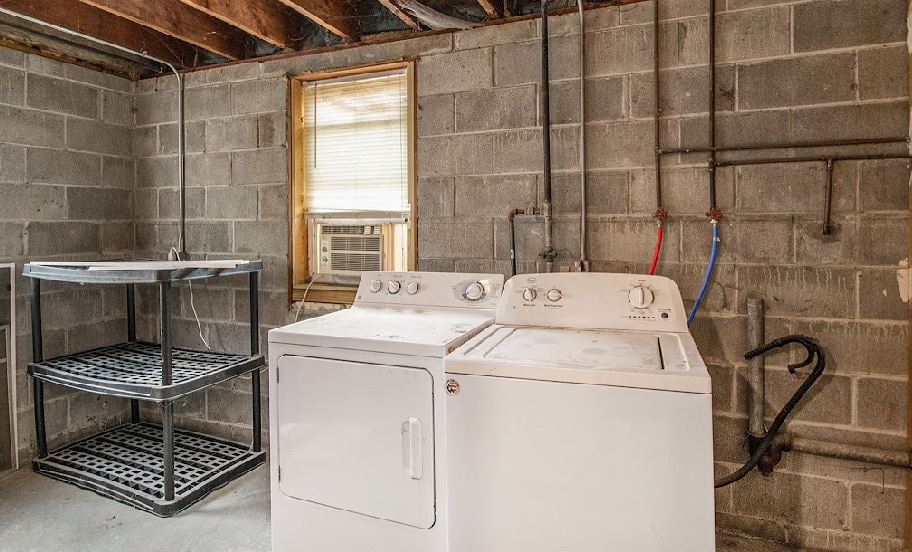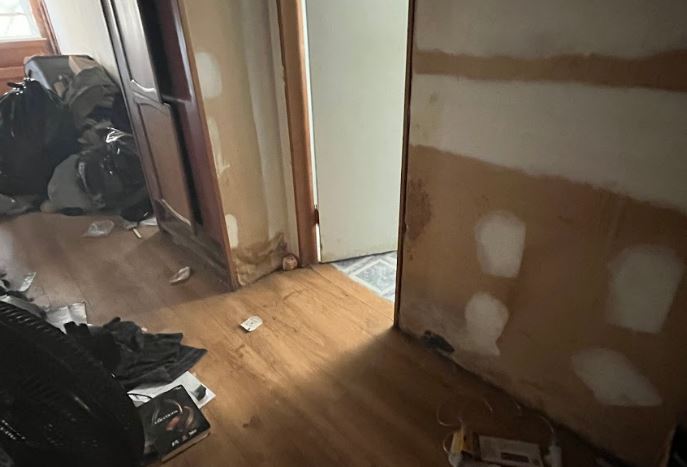Dealing with a failed inspection on a renovation project can be a real headache.
All that time and money invested…
Now, you are dealing with delays, extra costs, and possibly a messy dispute with your contractor over who is responsible for paying the additional expenses.
In this post, I’ll go over who pays if a contractor fails inspection and how to resolve disputes.
Plus, I’ll also give you some tips to avoid things like this in the future.
Who Pays If Contractor Fails Inspection?
In most cases, the contractor has to pay for failed inspections.
If the contractor makes a mistake, such as installing things in the wrong places, not following codes, or using low-quality materials, they are responsible for covering the costs of fixing it.
They should have done the work according to code in the first place, so they are responsible for fixing the issues.

You shouldn't have to pay extra to get your home up to code.
Also Read: can you sell a house with code violations
However, there are some situations where you might be responsible for additional costs.
If you give bad or incomplete instructions, don't get the required permits, or if it fails due to changes you requested outside the original scope of work, it's your fault.
You may be required to cover costs for factors beyond their control, such as changes in code interpretation or unforeseen site conditions. You might need to negotiate a fair price adjustment to the contract.
Read The Contract Again
My advice is to read the contract again before determining responsibilities.
The contract should clearly state that the contractor must follow local codes and regulations, and also outline your responsibilities, such as providing access and who obtains the permits.
Review what the contract says about code compliance and inspection requirements first.
Resolving Disputes
If there is a failed inspection, the contractor may suggest a "change order" or request additional payment to fix the problems.
Now, like I said, if it's the contractor's mistake, you shouldn't have to pay.
Sometimes the contractor will not agree to this, even if you show them the contract.
If that's the case, I highly recommend considering mediation or arbitration as effective alternatives to avoid incurring any additional expenses.
But if it's just a small amount, this isn’t worth it.
Also Read: do ceiling fans increase home value
Mediation And Arbitration
In mediation, a neutral person helps both of you talk things out and find a middle ground.
The agreements you make aren't legally binding, but it's cheaper than going to court.
Arbitration is a bit more formal. An arbitrator looks at evidence from both sides and makes a decision that you both have to stick to, kind of like a judge.
Plus, lots of construction contracts say you have to do arbitration instead of going to court if there's a problem.
If That Doesn’t Work
If things didn't work out, taking legal action might be your (or their) only option.
If the contractor fails to fulfill their promise or performs their job poorly, you have the right to take legal action against them for breach of contract or negligence.
To make sure you have a strong case, keep good records of everything.
Save all your contracts, any changes you agreed to, reports from inspections, records of your conversations like emails or texts, and pictures or videos of the work.
Basically, keep anything that shows what happened.
But IMHO, just paying the contractor would be cheaper than going to court.
How To Avoid Contractor And Inspection Problems
Here are my best tips to avoid things like this the next time you hire a contractor:
#1 Hire Good Contractors
The best way to avoid failed inspection issues is to hire licensed, reputable contractors who have lots of experience working in your local area.
Contractors who have been doing jobs in your town or city for years know the local codes inside and out.
They also probably know the inspectors personally and understand exactly how stringent or lenient each one tends to be when enforcing codes.
So, don't be afraid to ask plenty of questions when you are vetting contractors.
Also check their online reviews and ratings too.
Also Read: contractor wants 50 up front
#2 Clear Contracts
Make sure your contract spells out code compliance responsibilities in clear, unambiguous language.

Don't settle for vague terms that could be open to interpretation later.
The contract should explicitly state that the contractor is obligated to perform all work in accordance with applicable local codes and that they are responsible for ensuring the work will pass inspections.
You might even want to include specific sections of the building codes.
And if there's any uncertainty, have the contractor review and approve the contract language pertaining to code compliance.
That way, there's no wiggle room if issues arise during inspections.
#3 Regular Check-ins
Don't just assume the work is being done to code throughout the project's duration.
Make sure to conduct regular inspection walk-throughs, especially at important stages before things move forward
If you're not super familiar with building codes yourself, it might be worth hiring an independent inspector to check the work now and then.
Finding problems early stops them from turning into big headaches later.
#4 Open Communication
Keeping the lines of communication open with your contractor is also important.
Make sure you know the project schedule and stay available to answer any questions or sort out any issues that come up.
If you're worried about whether the work is meeting code, don't hesitate to speak up.
The sooner you raise concerns, the easier they are to fix before inspections.

